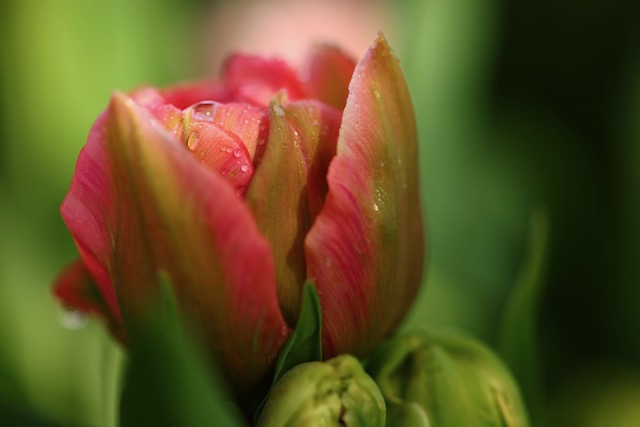You may be wondering: What does gardening have to do with your mind? New research in this area shows that gardening is not only physically healthy, but can also improve cognitive skills.
Last year I wrote about the health benefits of spending time in the garden and in nature. Today's article takes the concept a step further and shows how gardening can help those struggling with memory loss or dementia.
I hope you are inspired to share gardening with the people in your life who are struggling with memory loss. Grow something new that will bring them joy. Learn about their favorite plants and how to grow them here in the Pacific Northwest.
For me, gardening is a pleasant physical, mental and leisure activity. Simply digging in the dirt is known to have real health benefits. Fresh air, bird watching and appreciating natural beauty are good for all of us, especially as we age, but increasing research suggests that gardening may also reduce the risk of dementia.
According to the National Institutes of Health website, gardening supports psychophysiological improvements in people with dementia. It improves your depression and mood and reduces restlessness. It also reduces stress, reduces the need for medication and increases engagement skills. It even helps reduce falls in people with dementia.
I would like you to meet some of the people in my life who have suffered from dementia to learn how plants and gardening have affected them:
Helen
Helen, my mother-in-law, wasn't much of a gardener, but she was sentimental about her plants. She had a bearded iris that her mother had bred and passed on to her. She had a particular fondness for roses and lived in an area where there were many deer that liked to eat them. However, that didn't stop them from growing them!
The deer jumped over the fence and nibbled on her row of roses. Sometimes she covered the plants with wire. As a wedding gift, she bought us a favorite rose called Fragrant Cloud – a beautiful hybrid tea rose with a lovely scent (pictured below). The smell of this rose during her visit brought back fond memories and brought her joy.
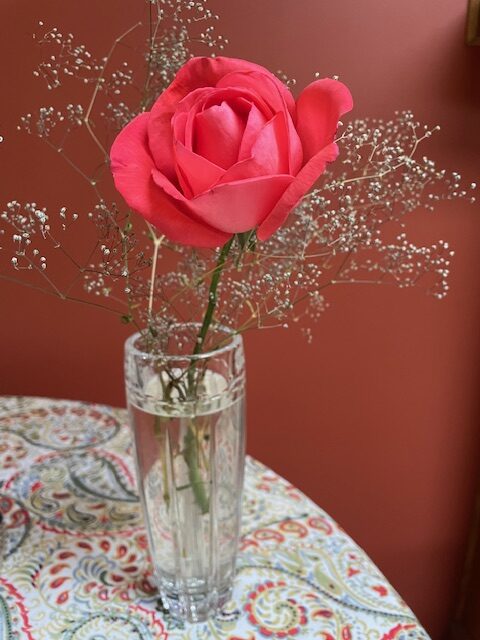
Helen loved one of my shrub roses called 'The Fairy' (both pink and white varieties). Her mother's name was Fairy, and when she heard the name, she immediately fell in love with her. I bought her one for Mother's Day and she took special care of it until well after her dementia period.
This medium-sized rose with tiny clusters of flowers brought her great joy. She planted it near her house so she could observe the deer and watch it grow.
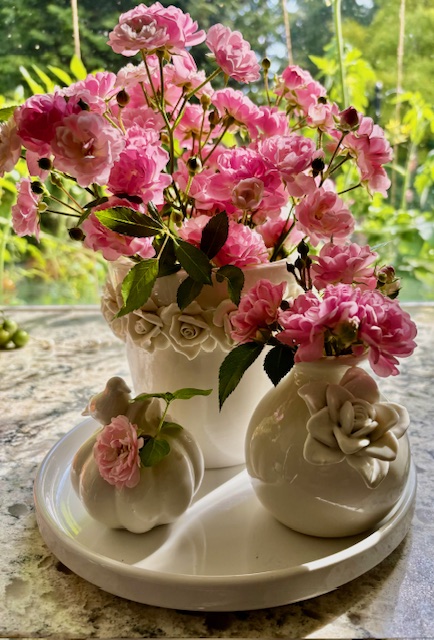
There is a rose nursery in Snohomish called Antique Rose Farm that carries these two roses. Swanson's Nursery has good information about growing roses in our area on its blog.
Ken
My brother Ken loved spending time outdoors. Our Depression-era father taught us to gather wild mushrooms and berries, hunt and fish. Ken was an avid boater who harvested all types of food from the sea.
When I talked to his family about a favorite plant or tree, they told me he really wanted a palm tree. His family decided to buy him one for Father's Day, and it's happily growing in their garden in LaConner. He enjoyed watching it grow near their driveway, visible from a window where he could see it.
Maybe it reminded him of his many travels around the world where palm trees grow.
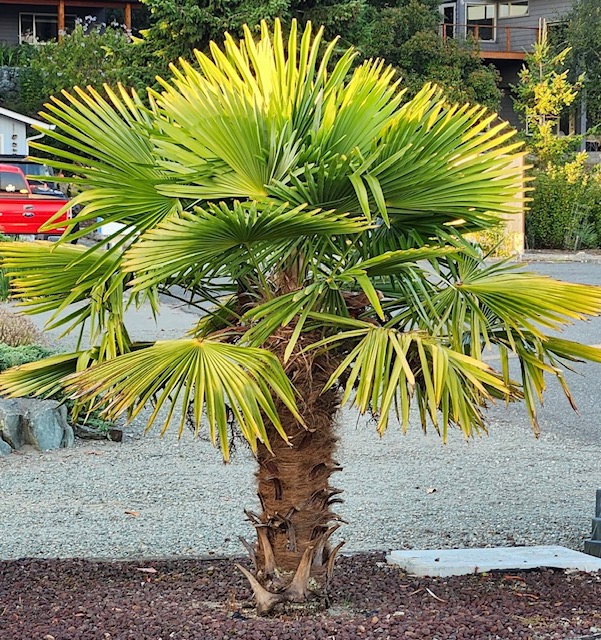
The best palm that grows well in the Seattle area is the Chinese Windmill Palm (Trachycarpus fortunei). It is hardy, fast growing and can handle our cold, wet climate.
Terry
My brother-in-law Terry has suffered from dementia for several years. He grew up on a farm in Iowa and particularly enjoyed growing corn. He was proud of his large garden on Camano Island, and at one point his garden was so productive that there was a freezer full of home-grown sweet corn.
He also enjoyed mowing the lawn and tending to his 4 acres. One time for his birthday we bought him a sweatshirt that said “The Lawn Ranger!” He still has a good sense of humor and loves his corn.
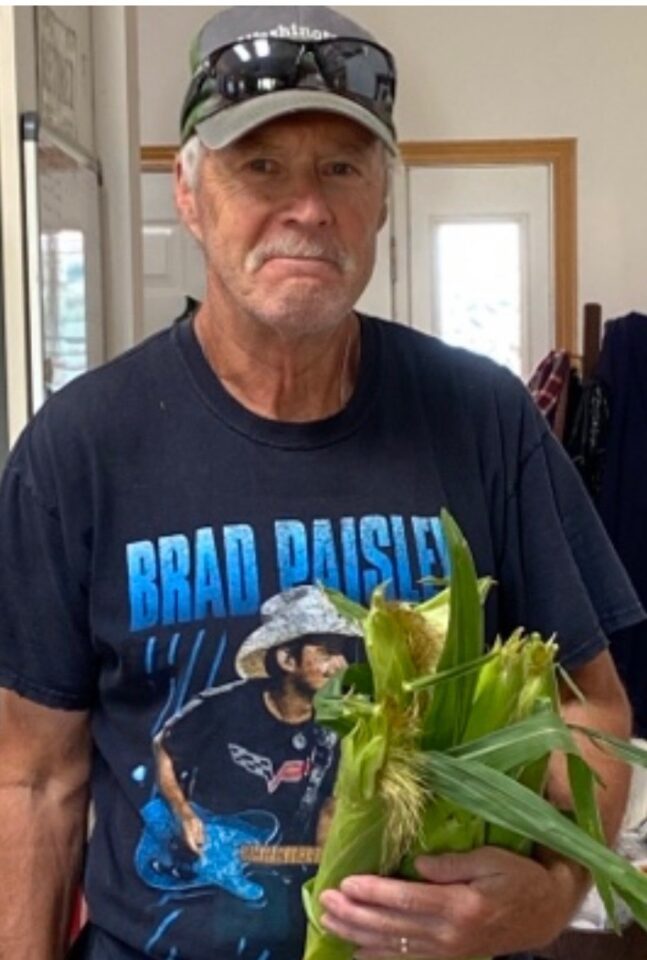
There are many different varieties of corn in our area that thrive in full sun. Choose an early-ripening variety that matures in 85 days or less since we have a short growing season here. The ideal time for sowing outdoors is early to mid-April. Urban Farms recommends a yellow variety called “Bodacious,” which they purchase from Territorial Seed Company. I found some good growing tips on their website.
Mary
My dear friend, who I will call Mary, is my age and the first of all my close friends to suffer from dementia. Our birthdays are only a few days apart. She is friendly and smart and enjoys fresh flowers from the garden, especially hydrangeas. She and her husband always have several vases of fresh-cut flowers in the house just for fun; They cheer her on and she enjoys compliments on her arrangements. She likes bunch hydrangeas best.
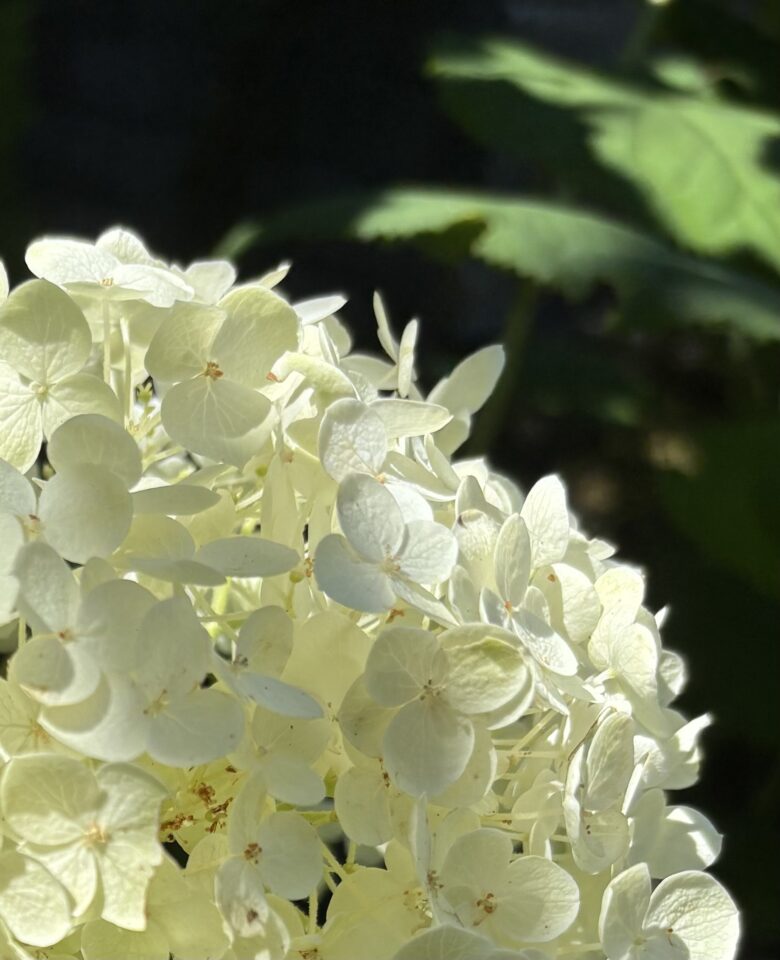
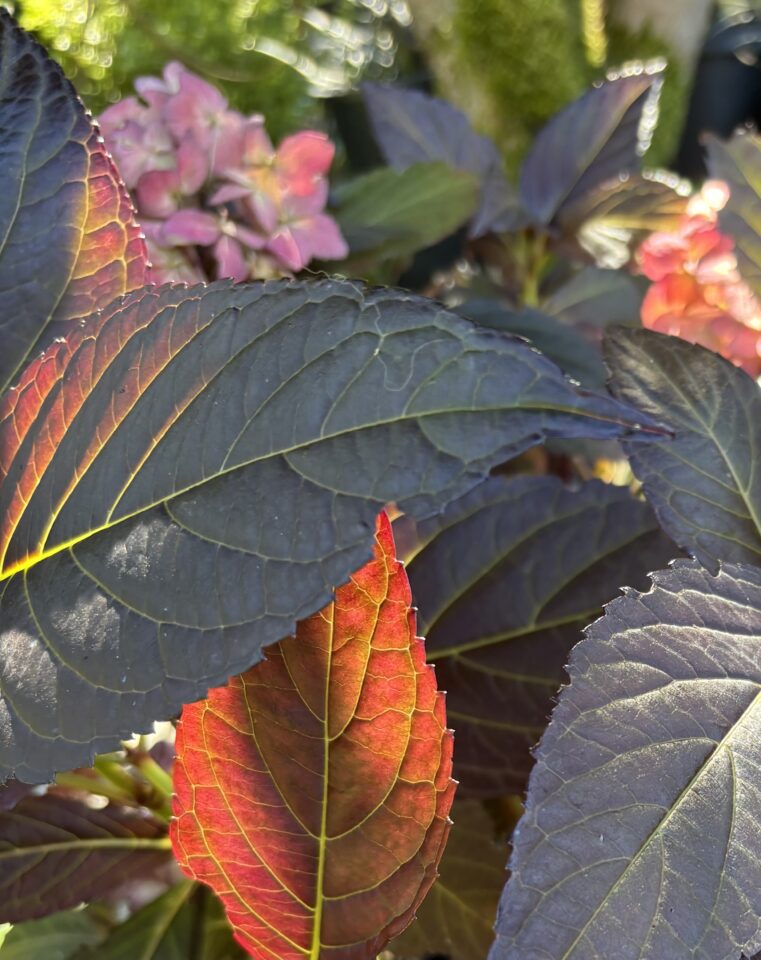
Another favorite is the Eclipse hydrangea, whose leaf color is as stunning as the flowers. There is so much greenery in the Pacific Northwest that I like to combine it with some blues, purples and chartreuse foliage.
Hydrangeas thrive in our climate and require regular watering. For a good resource on hydrangea care, check out the Swanson's Nursery blog.
Linda
The last person I'm writing about is my second mother-in-law, Linda. Linda may be suffering from a type of dementia related to a serious fall in which she suffered head trauma. She is very happy and when she told me about her favorite flower, tulips, we laughed funny about all the tulip songs that she then sang for me. There are quite a few!
She loves flower bulbs, especially because they are beautiful and easy to grow. She stuck flower bulbs between concrete blocks and commented that she likes them peeking out from the vegetable garden in the spring. Now is a great time to plant tulips from our many local growers in Puyallup and the Skagit Valley.
If you haven't visited a daffodil or tulip field in full bloom, I highly recommend you do so. I was fortunate to grow up in Mount Vernon and work in the fields as a child. My father had a small plane and I loved flying over the valley in the spring. It looked like a colorful patchwork quilt.
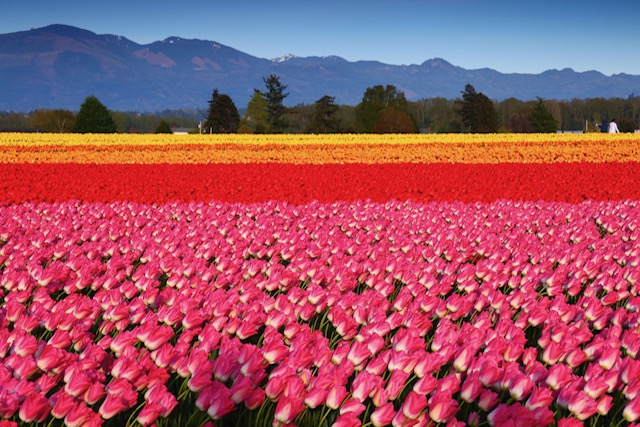
There is a senior living facility in Lynnwood called GenCare Lifestyle Scriber Gardens that emphasizes gardening for its residents. The Boeing Company installed new landscaping as part of its Acts of Kindness program and placed raised planter boxes around the community and near the kitchen.
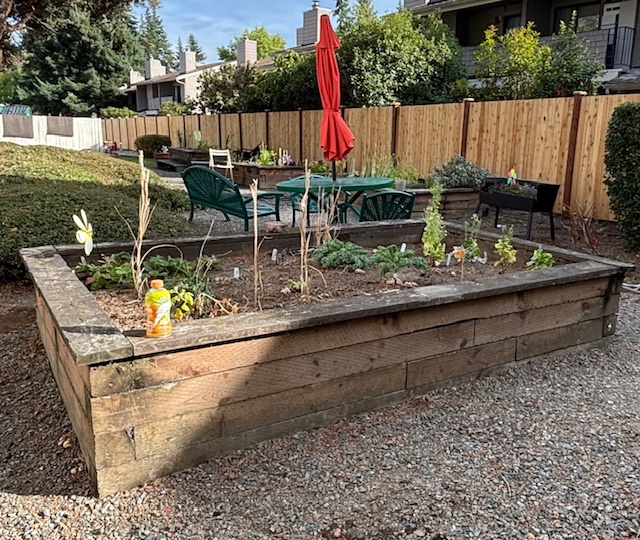
The home has three levels of care: advanced living, assisted living and independent living
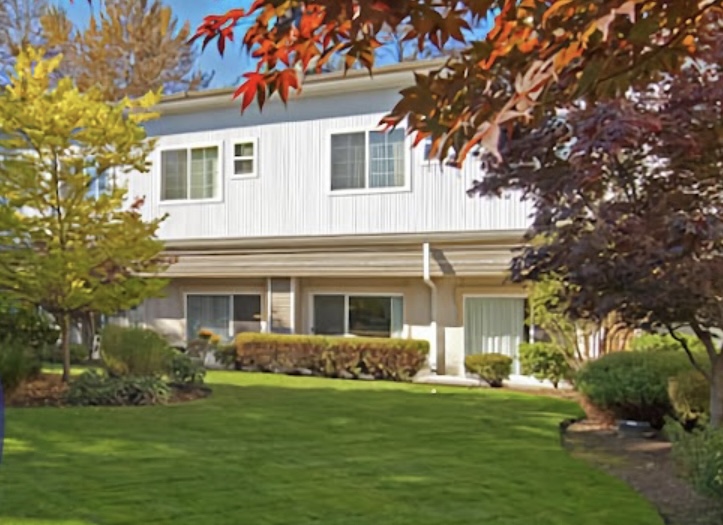
According to Jacob Hanson, their director of vitality, residents visit the gardens daily. It gives them a sense of purpose, a green space to enjoy and a safe environment to walk.
The residents take care of watering the raised beds. They grow and harvest fruits and vegetables, flowers and herbs to share with others and have started a gardening club. The property also has several beautiful spots where residents can sit and enjoy nature. They would welcome speakers and volunteers from local garden clubs or the community to help with gardening activities.
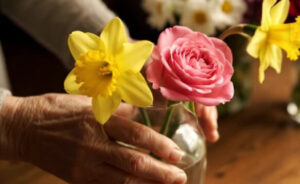
If you would like to learn more about gardening with dementia, there are several websites available. Australia funds several gardening programs for older people and those living with dementia, taking a very progressive approach to the older community.
There are many types of dementia and the disease progresses differently in each person. My first career after college was as a social worker at an adult care facility called Foss Home in Seattle.

I learned that people with dementia still have many things they enjoy, whether it's listening to music or sharing memories of the flowers in their grandmother's garden; They appreciate mental stimulation. I am encouraged by this new area of research.
Now I'm going out to plant my bulbs before it either rains or gets too dark. What better way to create new memories? One day we will remember our children in the tulip fields or sing tulip songs with a friend!
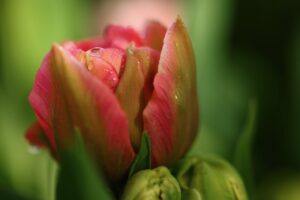
Val Taylor had her first garden when she was 11 years old. She grew up in the Skagit Valley and spent a lot of time working on local farms with fruits, vegetables and bulbs. After college, a career, and young children, she attended the Master Gardening program in Seattle and volunteered for several years. She now belongs to five different gardening organizations in the northwest. She loves gardening and sharing.
